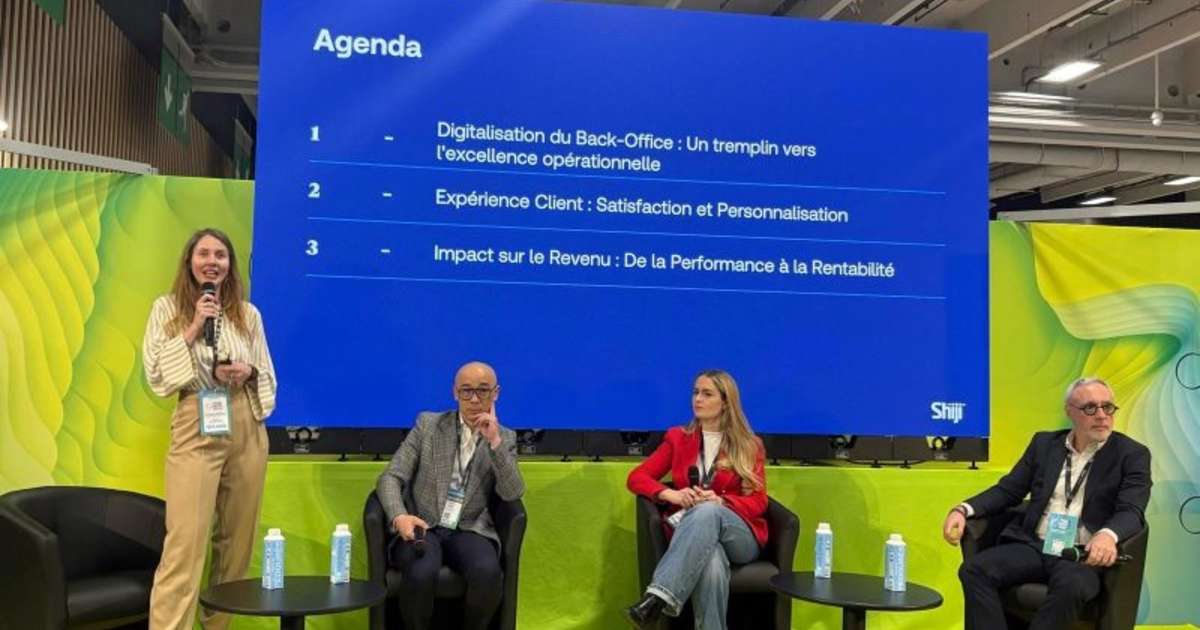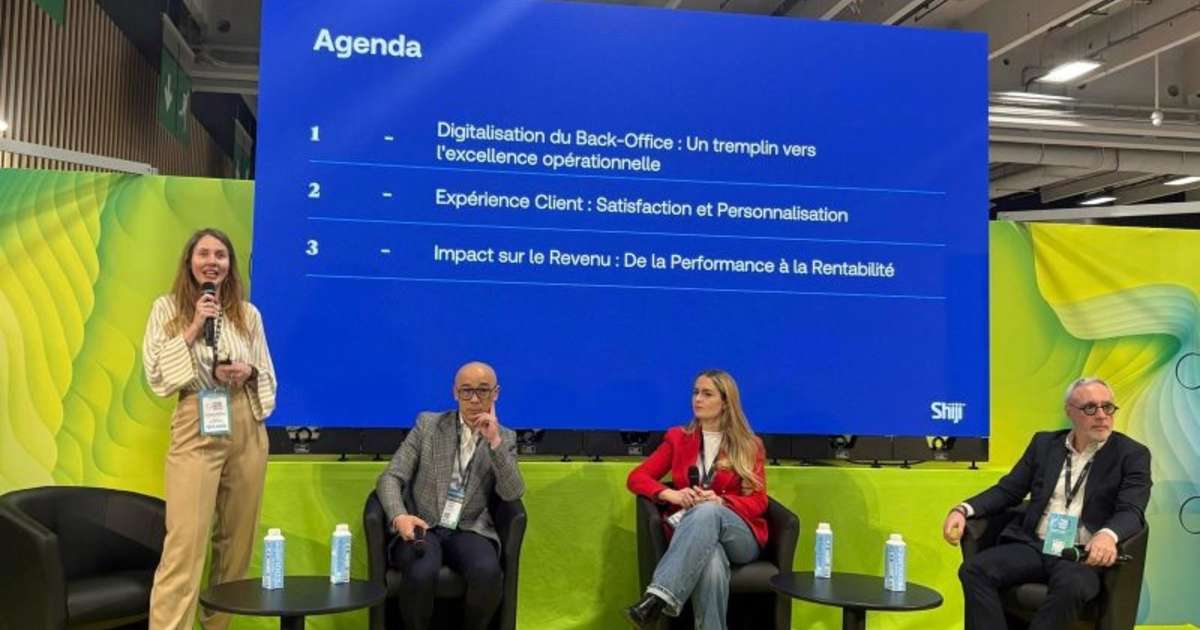
The French hospitality industry is at a crossroads. Between stricter regulations, rising operational costs, and increasing guest demands, hotels across France are under pressure to evolve. At FHT Paris 2025, industry leaders gathered to explore how Digital Transformation is transforming hospitality operations, moving beyond buzzwords and into real-world impact.
The session, “Digitalisation in Hospitality: From Back Office to Guest Experienc e,” brought together experts from Shiji, Groupe Madeho, FutureLog, and luxury hospitality to discuss the operational and strategic implications of going digital, from the kitchen to the guest room.
Key Takeaways
Start with the back office: Digital tools streamline inventory, procurement, and maintenance, freeing teams to focus on guests.
Real-time operations: Mobile apps and sensors boost efficiency and responsiveness across departments.
Data powers personalization: Tools like Reviewpro’s GRI™ turn guest feedback into actionable insights.
Why digital transformation is no longer optional
The panel opened with a compelling reality check: today’s hotels face a double challenge, a tight labor market and rising guest expectations. In fact, a growing number of millennial travelers, 57% according to recent data, say that technology significantly influences their hotel choices. With that in mind, Digital Transformation must start behind the scenes to truly deliver value at the front desk and beyond. As Iulia Catineanu, Sales Manager at Shiji, put it:
Optimising internal operations is not just about efficiency, it’s about survival. Digital tools are the bridge between operational excellence and unforgettable guest experiences. Iulia Catineanu, Sales Manager at Shiji
Digitalising the back office: saving time, reducing costs
Sébastien Calmejane, Business Development Director at FutureLog, highlighted how hotels can eliminate low-value tasks through smart automation. Inventory used to take days. Now with mobile apps and barcode scanning, it’s done in hours, with fewer errors and full traceability.
The same goes for procurement. Instead of juggling WhatsApp messages and PDFs, hoteliers can place orders through webshops in just a few clicks. With France preparing to phase out paper invoices by September 2026, the message was clear: the time to act is now.
Océane Lahaye from Groupe Madeho showcased real-life use cases, from fridge sensors that automate temperature logging to digital housekeeping apps that connect teams in real-time: We’ve moved from paper checklists to predictive maintenance. It saves time and ensures consistent quality.
Transforming guest experience through technology
But Digital Transformation doesn’t stop at operational improvements. It’s a revenue driver when executed with intention.
Digital tools free up staff time. That translates to more meaningful interactions with guests, and greater opportunities to tailor the experience to their preferences, highlighted Léon Zhang Bao, who brings 25 years of experience in luxury hotel finance.
He emphasized that human connection remains irreplaceable, but digital tools enhance the ability to serve, anticipate, and retain guests. At Groupe Madeho, this philosophy has led to the adoption of CRM systems, semantic review analysis, and automated guest messaging, all designed to boost satisfaction and loyalty.
Measuring what matters: reputation, reviews, and revenue
As hotels adopt tools like Reviewpro’s Global Review Index (GRI™), they gain real-time visibility into reputation trends across platforms.
We don’t just track scores, we act on them, said Océane. If GRI drops, we investigate. Often it’s something operational we can fix, like extra staff training or better in-room amenities.
And the return is measurable. A Cornell University study found that a one-point increase in GRI correlates with a 0.89% rise in ADR and 0.54% in occupancy.
Sustainability and digital transformation go hand in hand
The conversation also touched on the rising demand for eco-conscious travel. With 68% of travelers actively seeking environmentally responsible hotels, Digital Transformation is playing a role here too, from automated energy management systems to tools that reduce food waste.
Groupe Madeho’s recent Clé Verte certification was the result of a company-wide initiative powered by both human commitment and digital infrastructure.
Conclusion
The panel concluded with a call to action: successful Digital Transformation is less about buying tools and more about building a culture of continuous improvement.
Don’t wait for the perfect solution. Decide, allocate resources, listen to your teams, and iterate, advised Léon Zhang Bao, bringing lessons from luxury hospitality to the broader industry.
Watch the full panel talk: (In French)
View source
Please visit:
Our Sponsor
